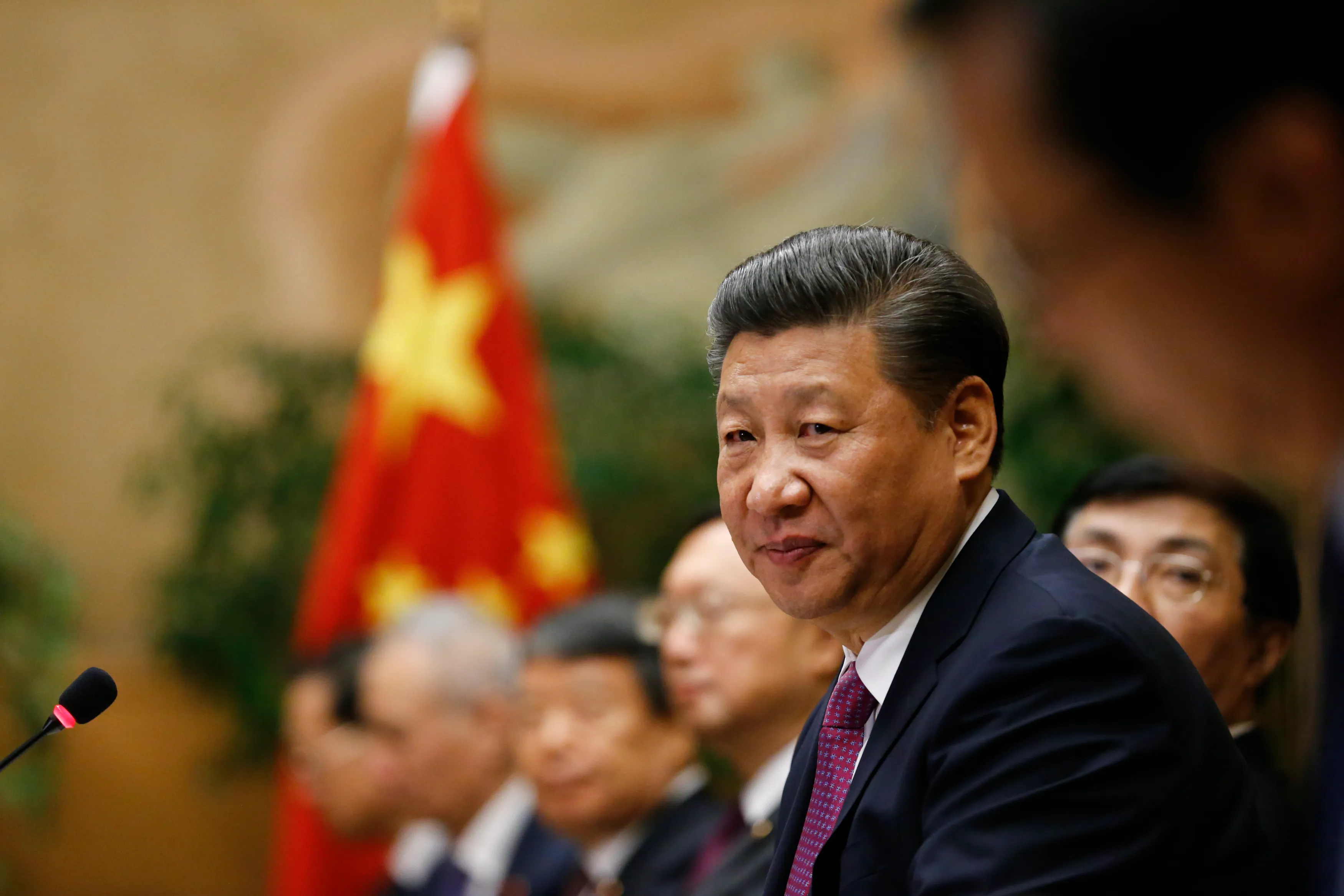Political ideology of Xi Jinping, instill fear and rule the roost
Xi Jinping is the supreme leader of China who believes in a strongman rule, had replaced the previous leadership, and is guided by one ideology, and believes one party rule.
In the year 2022, a high drama unfolded in front the world media where both president Xi Jinping and predecessor Hu Jintao shared the same platform. The event was 20th Congress of Chinese Communist party where Xi Jinping was reflecting uponsecuring a successful third term and projected himself as a leader for life in front of the elite ranks of Chinese leaders present there, including his two predecessors, Hu Jintao and Jiang Zemin. At the closing ceremony Xi and Hu were sitting close by and Hu had a red folder with him. Moments later a Chinese official snatched the red folder from Hu and Xi signalled another man to take Hu out of auditorium. Hu Jintao was grabbed by his armpit and forcefully taken out. All senior leaders present ignoredHu’s humiliation as Xi looked at other direction. This chilling episode reminded the world of Xi’s ability to instil fear in his detractors’ minds.
Xi is a strong believer of China’s territorial rights over countries like Taiwan and other Chinese territories that are currently part of other states, which has often been problematic for the world. Xi is on a mission to make China whole again and is hell bent to integrate Taiwan and some other territories under his rule to make his country a raging force in the world.
Xi also wants his countrymen to be one patriotic people. One patriotic people means that whether it is minorities such as the Uighurs, Christians or politically-inclined pro-democracy people of Hong Kong, all together should be re-educated, radicalised to make them a true believer of his party-centric nationalism. This makes them a proud Chinese and ardent supporters of hisparty and givesXi Jinping a “Godly” stature.
Xi is installing his ideology and ideas in the mind of Chinese people starting from kindergarten to graduate school and through study sessions in workplaces and the daily use of a dedicated app XuexiQiangguo. He is using the technology to ban any unpatriotic idea, statement, or narrative, that contradicts hisparty-approved version of Chinese history.
Xi has posed himself as an exact replica of powerful Chinese leader Mao Zedong. Like Mao,Xi also wants to restructure and solidify his country under his rule and has publicly stated, ‘whether it is in the East, West, South, North or in the middle, be it in the party, government, military, civilian or the educational realm, the Party leads everything’. Xi has used his clout to eliminate elements of civil society and often targets leaders, businessmen and other elite class of China who challenge his rule by using his controversial anti-corruption law.
Xi’s strongman leadership is considered to be the most fearful since the Tiananmen Massacre of 1989, which has given his party the capacity to suppress any revolt that could potentially destabilise its hold on power for over a quarter of a century. Under his leadership, the Communist Party of China has become more enforcing and has enacted strangulating laws that have led to chaos. One glaring example of such law is the Zero Covid policythat when was in full force led to thousands of deaths and derailed the economy.The Zero Covid policy wasrolled backby the Chinese regime after Chinese people came out publicly through ‘blank paper protests’hitting against Xi’s failedgovernance in late 2022. Some other policy mistakes made under Xi’s leadership included crumbling property market, local government debts, trade relations with the outside world, and the unleashing of wolf-warrior diplomacy – which literally means aggressively dismissing any criticism of Chinese policy.
Xi wants China to restore its old glory where it led the world in wealth, power, advanced technologies, and civilisation. He is busy projecting China as a magnificent and benevolent nation by offering loans to needy nations such as Turkey, Argentina, and Sri Lanka, but actually the agenda is to make these nations respect, admire and follow the leadership of China and oppose capitalistic Western countries at global platforms like the United Nations.
Xi, under his leadership, has devised three global initiatives –the Global Development Initiative (2021) to boost development, the Global Security Initiative (2022) to tackle food and energy insecurity, and the Global Civilisation Initiative (2023) to push for world peace and development.To back his initiatives, Xi has got the Belt and Road Initiative (BRI) of development assistance that has bigger appeal to global South compared to the West. China now is an alternative to World Bank, IMF,offering loans to infrastructurally low nations in the South without any conditions and in return wants these nations to support China’s ambitions at the UN and other international organisations, and give it bigger chunks of development projects on their soil.
But Xi’s foresight of China may hurt his own people the most. Poor planning of policies and enormous spending on defence forces has halted China’s economic growth, Moreover, Xi’s diplomacy has come under great criticism. China now has made some great enemies in the form of Japan, Australia, Vietnam, India, and the United States. Especially with the US, China has been under constant trade war, as there are multiple sanctions from the West. Xi’s regimes’ human rights record also shades a gloomy picture in front of the world. China under Xi has come out as a power hungry nation that may go to any extent to fulfil its hegemonic intentions.













